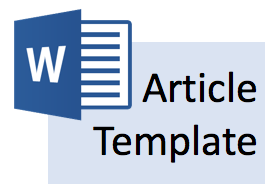Stabilisasi Ekonomi Melalui Kebijakan Fiskal: Studi Literatur Terkait Dampak Pajak Terhadap Pendapatan dan Konsumsi; Kebijakan Fiskal dan Distribusi Pendapatan; Efektivitas Kebijakan Fiskal
Abstract
Keywords
Full Text:
PDF (Bahasa Indonesia)References
Andres, J., Bosca, J. E., Ferri, J., & Albero, C. F. (2022). Households’ Balance Sheets and the Effect of Fiscal Policy. Journal of Money, Credit and Banking, 54(4), 737–778.
Anton, S. G., Onofrei, M., Gogu, E., Neculau, B. C., & Mihai, F. (2021). Debt overhang, gazelles’ growth, and fiscal policy: A note from the quantile regression approach. Sustainability (Switzerland), 13(18), 1–10.
Apergis, N. (2021). The role of fiscal policy in the link between income inequality and banking crises. Applied Economics Letters, 28(15), 1283–1287.
Azad, N. F., Serletis, A., & Xu, L. (2021). Covid-19 and monetary–fiscal policy interactions in Canada. Quarterly Review of Economics and Finance, 81, 376–384.
Blasco, J., Guillaud, E., & Zemmour, M. (n.d.). Blasco, J., Guillaud, E., & Zemmour, M. (2023). The inequality impact of consumption taxes An international comparison. Journal of Public Economics, 222, 104897.
Bredemeier, C., Juessen, F., & Winkler, R. (2020). Fiscal Policy and Occupational Employment Dynamics. Journal of Money, Credit and Banking, 52(6), 1527–1563.
Castillo-Ramírez, A., & Mejía-Giraldo, D. (2021). Measuring financial impacts of the renewable energy based fiscal policy in Colombia under electricity price uncertainty. Sustainability (Switzerland), 13(4), 1–28.
Chen, S., Liu, X., & Lu, C. (2022). Fiscal Decentralization, Local Government Behavior, and Macroeconomic Effects of Environmental Policy. Sustainability (Switzerland), 14(17), 1–18.
Cole, A. L., Guerello, C., & Traficente, G. (2020). Munich Personal RePEc Archive One EMU Fiscal Policy for the EURO One EMU Fiscal Policy for the EURO ∗. Macroeconomic Dynamics, 24(6), 1437–1477.
Cook, D., & Devereux, M. B. (2019). Fiscal Policy in a Currency Union at the Zero Lower Bound. In Journal of Money, Credit and Banking (Vol. 51, Issue S1).
Debmalya Mukherjee, Satish Kumar, N. D. & N. P. (2021). Research Published in Management International Review from 2006 to 2020: A Bibliometric Analysis and Future Directions. Management International Review, 61, 599–642.
Drygalla, A., Holtemoller, O., & Kiesel, K. (2020). Discussion Papers. Macroeconomic Dynamics, 24(6), 1315–1345.
Florea, N. M., Meghisan-Toma, G. M., Puiu, S., Meghisan, F., Doran, M. D., & Niculescu, M. (2021). Fiscal and budgetary policy efforts towards climate change mitigation in romania. Sustainability (Switzerland), 13(5), 1–18.
Hills, T. S., & Nakata, T. (2018). Fiscal Multipliers at the Zero Lower Bound: The Role of Policy Inertia. Journal of Money, Credit and Banking, 50(1), 155–172.
Jaimovich, N., & Siu, H. E. (2012). THE TREND IS THE CYCLE : In The Trend Is The Cycle: Job Polarization And Jobless Recoveries.
Jegede, E. (2018). Cultural Imperatives for Sustainable Development in Nigeria. Chemchemi International Journal of Humanities and Social Sciences, 10(1), 86–97.
Kaharudin, I. H., & Ab-Rahman, M. S. (2022). Fiscal Policy Effects on Private Expenditure for Sustainable Economic Growth: A Panel VAR Study from Selected Developing Countries. Sustainability (Switzerland), 14(17).
Li, H., Guan, S., & Liu, Y. (2022). Analysis on the Steady Growth Effect of China’s Fiscal Policy from a Dynamic Perspective. Sustainability (Switzerland), 14(13), 1–15.
Mahmood, H., Adow, A. H., Abbas, M., Iqbal, A., Murshed, M., & Furqan, M. (2022). The Fiscal and Monetary Policies and Environment in GCC Countries: Analysis of Territory and Consumption-Based CO2 Emissions. Sustainability (Switzerland), 14(3).
Motta, G., & Rossi, R. (2019). Optimal fiscal policy with recursive preferences. Journal of Money, Credit and Banking, 51(1), 139-161., 51(1), 139–161.
Nguyen, T. A. N., & Luong, T. T. H. (2021). Fiscal policy, institutional quality, and public debt: Evidence from transition countries. Sustainability (Switzerland), 13(19).
Ono, T. (2019). Discussion Papers In Economics And Business. Macroeconomic Dynamics, 23(8), 3099-3139., 23(8), 3099–3139.
Studnicka, Z., & Davies, R. B. (2023). A review of submissions to International Tax and Public Finance, 2010–2020. International Tax and Public Finance, 30, 1185–1201.
Xiao, Y., & Watson, M. (2019). Guidance on Conducting a Systematic Literature Review. Journal of Planning Education and Research, 39(1), 93–112.
Zhou, C., Xie, H., & Zhang, X. (2019). Does fiscal policy promote third-party environmental pollution control in China? An evolutionary game theoretical approach. Sustainability (Switzerland), 11(16), 4434.
Zidar, O. M. (2019). Tax Cuts for Whom ? Heterogeneous Effects of Income Tax Changes on. Journal of Political Economy, 127(3), 1437–1472.
Refbacks
- There are currently no refbacks.


